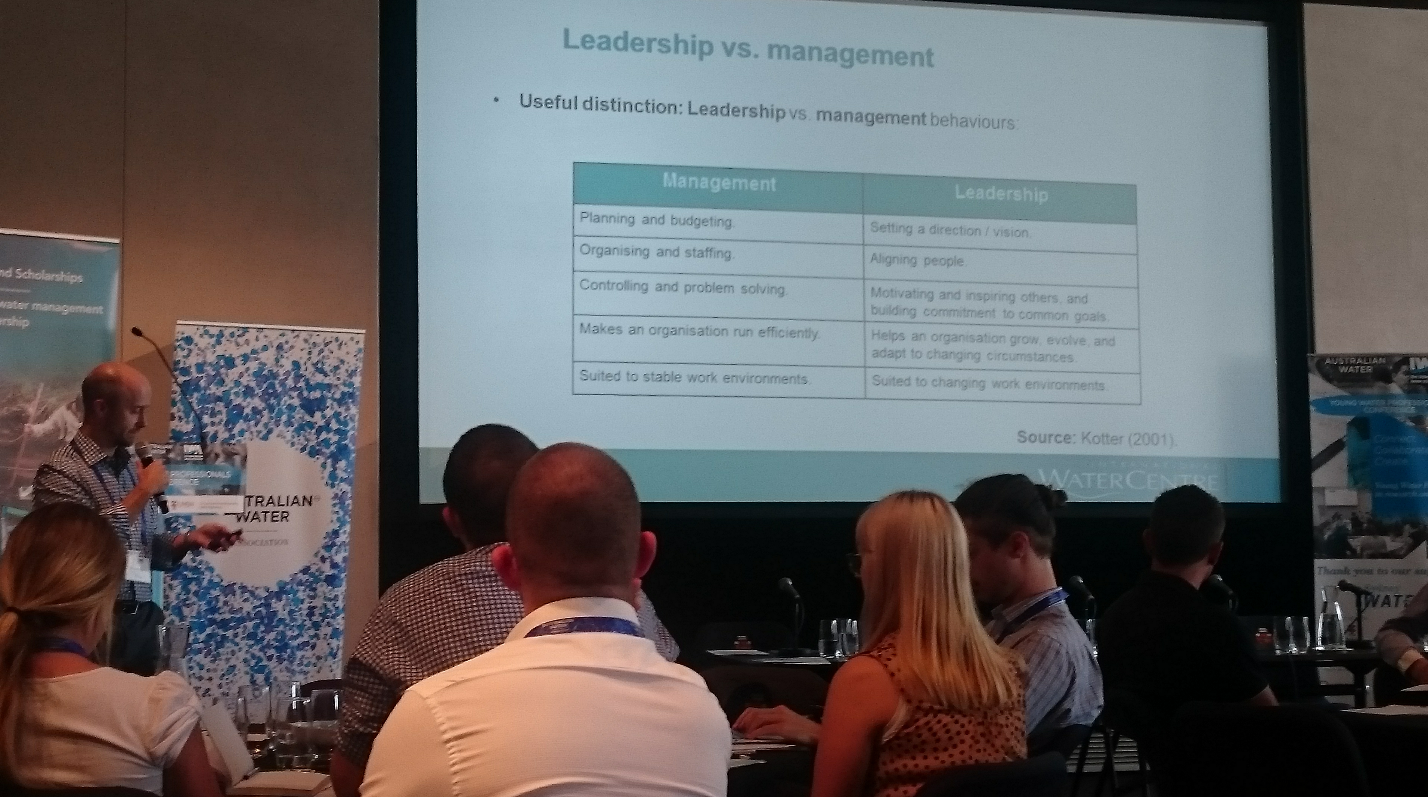Why Wait to be a Leader of the Future When You Can Start Being a Leader of Today?
Young water professionals are often coined ‘leaders of the future’, but this notion is inadequate. Young water professionals want their voices heard now and to be involved in the decision making of today. For this to occur, we not only need young professionals with great leadership attributes, but also for the sector to recognise their ability to contribute.
So, what makes great leaders great?
At the IWA/AWA Australian Young Water Professionals Conference 2016, the International Water Centre’s Brian McIntosh began the leadership workshop by initiating discussions with delegates on what leadership meant to them: what are the key attributes of a great leader?
Simon Sinek, who developed The Golden Circle as a model for inspirational leadership, maintains that all great leaders start with ‘why’ (not ‘what’ or ‘how’). In his Ted Talk, Sinek reasons that “successful leaders are driven by a cause, by a purpose, by a goal.” This notion was echoed by McIntosh, who explained that leaders are not born, they are developed. Leaders arise out of a desire to do things better than they are currently being done. The only quality that can’t be taught is one’s sense of ‘why’, their passion and drive- attributes commonly found among young water professionals.
Conference delegates were asked to write down one water problem they’d like to solve. What gets them out of bed in the morning? And why? Many are passionate about potable water reuse, implementing the sustainable development goals, customer-focused solutions and overcoming innovation barriers in the Australian water sector. Then, McIntosh connected delegates with a shared passion and encouraged them to discuss where it stemmed from. A common inspiration amongst all young water professionals present was the vision of equitable and sustainable water solutions. Sharing our visions and what made us passionate about was an invaluable ignitor to connect at a deeper level and keep the conversation going beyond the workshop.
But ‘how’?
Many young water professionals know their ‘what’ and ‘why’ but can feel powerless to influence the ‘how’. As a sector we have access to these highly motivated individuals who pursued a career in water because they want to make a difference. We need to empower them, tap into this resource and utilise their diverse and innovative perspectives. The younger generation should not just be thought of as leaders of the future, but as an indispensable resource to guide the decisions of today.
How as a Young Water Professional?
Know your ‘what’ and ‘why’, then start thinking about ‘how’. Talk to people in your organisation to see if there are ways you can get involved in this space. Go to conference workshops; they are a great opportunity to learn and be heard. Connect with like-minded professionals and work together to inspire change.
How as an organisation?
Have your young professionals represented in strategic discussions so that they can contribute actively. Sydney Water engages with their YWPs by seeking feedback on organisational changes and providing opportunities for their voice to be heard. I had the chance to present on the sustainable development goals to high level management; although it’s not in my role description, Sydney Water saw that it is something I feel passionately about. The International Water Association is also fantastic at empowering their YWPs. I, along with four other young professionals, sit on the IWA’ Strategic Council. We advise the Board (one of whom is a young water professional) on the future direction of the association.
There are many ways to empower your young professionals. You can make a start by coming to the Future Leader’s Forum at the World Water Congress & Exhibition, taking place in Brisbane from 9th to 14th of October, 2016. We will discuss what capabilities, support and opportunities we require to achieve a sustainable future for the water sector. There will be various International Water Centre Leadership workshops run at the Congress, so I encourage you to come along.
To learn more about leadership, read Andre Taylor et al. (2015), Understanding six water leadership roles: A framework to help build leadership capacity.


